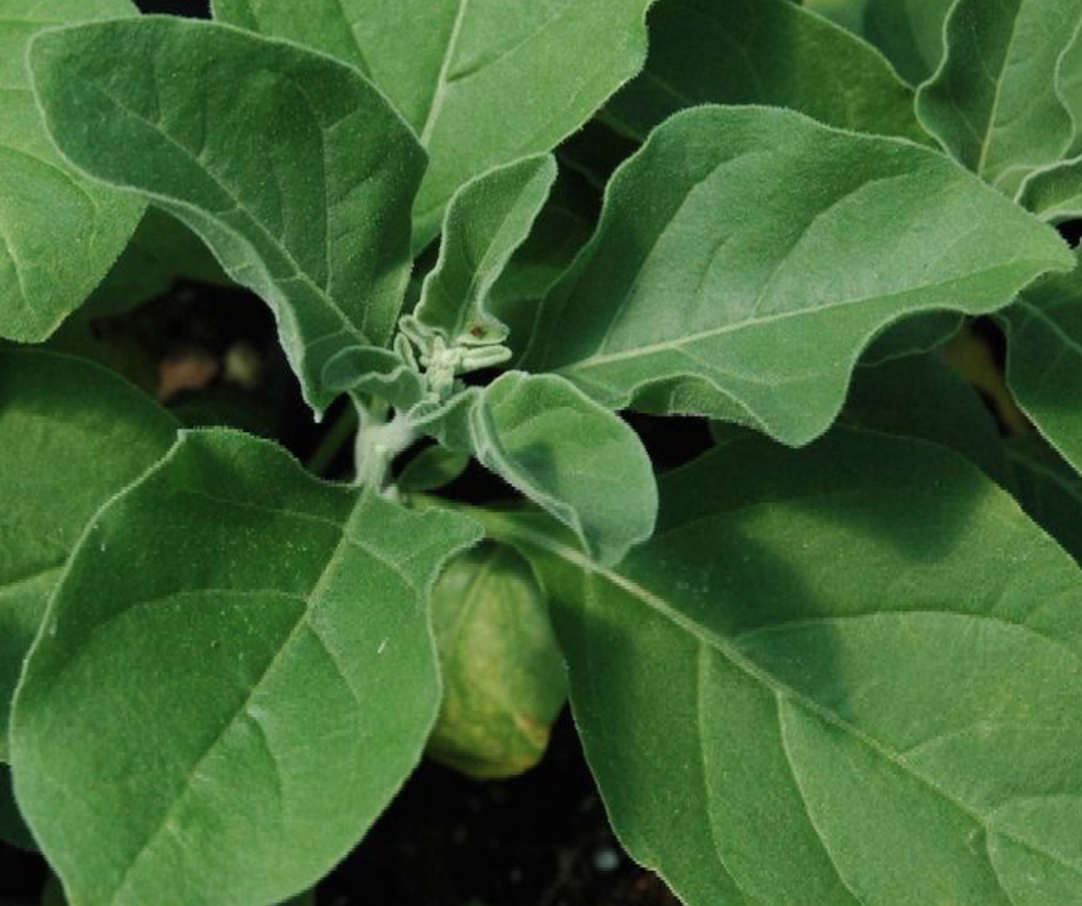
Heirloom Ashwagandha
This ancient medicinal herb has been used in Ayurvedic medicine for thousands of years. The flowers work as an astringent, detoxifier, diuretic and aphrodisiac. The seeds have antihelminthic properties and are used for treating and preventing infectious diseases and parasitic invasions. The fruits may be used as a topical treatment for tumors and tubercular glands, carbuncles, and skin ulcers [3].
Historically, the roots of Ashwagandha are the most crucial part of the plant and are widely used in various formulations. The root has potent aphrodisiac, diuretic, anti-helminthic, anti-oxidant, anti-depressant, anti-diabetic properties and have been used to maintain youthful vigour, stamina, strength and health in individuals. According to India’s Ayurvedic Pharmacopoeia, the powdered dried root of ashwagandha is used to treat arthritis, phthisis, constipation, insomnia, gastrointestinal issues, nervous breakdowns, skin conditions, diabetes, memory loss, fevers, infertility and various other conditions.
